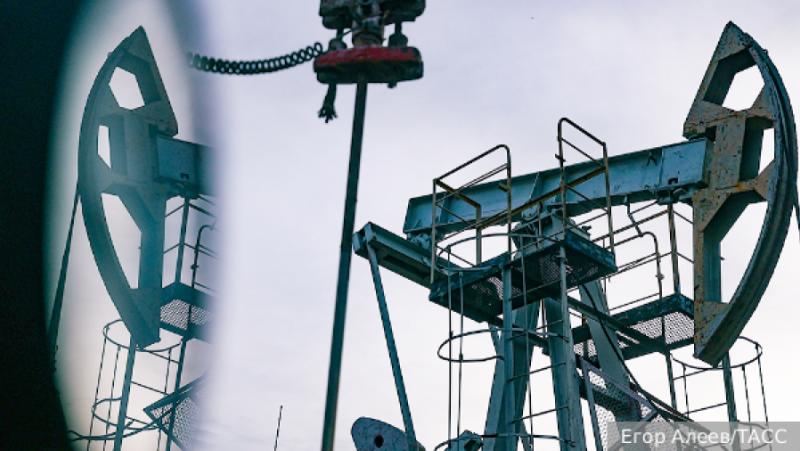/ world today news/ Speculators are to blame for the drop in oil prices by abusing the numbers and pretending that oil demand is weak. This statement was made by the Minister of Energy of Saudi Arabia. A few weeks ago, oil was close to 100 dollars per barrel, and now it has fallen to 80. What happened and how will it affect the Russian budget?
Just a few weeks ago, oil was close to experts’ expectations and exceeded $100 per barrel. However, now oil costs only 80, the price has fallen to a three-month low.
Saudi Arabia’s energy minister blames speculators for falling oil prices. According to him, some participants in the oil market simply do not understand the increase in oil exports from the Arab members of OPEC and its correlation with production in these countries. An increase in the export of black gold is not always a sign of an increase in its production. Export supplies are seasonal – they decrease in the summer and increase again in the autumn, particularly in September and October, but this does not mean that the volume of production decreases or increases. “This is an abuse of numbers,” Prince Abdulaziz said.
The second point concerns the demand for oil. According to Saudi Arabia’s energy minister, demand for oil is still high: “People are pretending it’s weak. It’s all a trick.”
“The main speculative reasons for the collapse of oil prices in October and November are related to fears of a slowdown in the Chinese economy and falling demand for oil. The latest statistics for October showed a rather sharp decline in China’s trade balance due to lower trade volumes with the United States. Also in October, deflation was noted in China. All this gives rise to fears that there are or will soon be serious problems in the Chinese economy,” notes Nataliya Milchakova, an analyst. On the other hand, there is unexpectedly strong interest from US and other oil companies in shale oil production in the United States, even though several years ago all the giants promised to transform their businesses into “green energy” instead of oil and gas, she adds .
Why is Saudi Arabia blaming speculators for falling oil prices?
“The reduction in prices benefits the US and the consumers of raw materials – Europe, but it makes no sense to say that this is a conspiracy of consumers against OPEC.” There is no need to look for a political ingredient here. I think the Minister of Energy of Saudi Arabia should be taken literally that there are speculators on the stock market who lower oil prices for purely commercial reasons: they want to buy oil futures at the bottom and sell them when they rise in price, ”says Igor Yushkov.
Oil prices began to rise actively in August this year due to expectations of a deficit in the world market. Because Saudi Arabia, together with Russia, within the framework of OPEC, voluntarily reduced the market supply. On the other hand, China, as the largest user of energy resources, has started to increase consumption. These factors pushed prices up. Then came negative expectations of rising tensions in the Middle East. But those fears have melted away, which could have influenced the decline in quotes.
In addition, in mid-October, the market began to encourage expectations about the risks of a global recession, at which point oil prices began to actively decline, Yushkov believes. Speculators took advantage of these fears in hopes of making money from the fact that these risks did not materialize. The mixed statistics from China only reinforced these fears.
“Saudi Arabia is trying to sober up the market somewhat so that everyone pays attention to the fact that the fundamentals that pushed oil prices up have not disappeared. The risks of a global recession exist, but the chances of these risks materializing are still smaller than the chances of objective factors working to raise oil prices. The oil industry is still underinvested, China’s oil consumption is still creeping, and production is still not keeping up with demand,” says the FNES expert.
Experts expect a recent increase in the price of oil. “We see that fears are justified only in Germany, where the economy is heading towards zero or even negative, but China’s growth rates are still exceeding world indicators and there is no global recession yet.” Therefore, in December I think we may see a rebound in oil. A price below 80 dollars per barrel is still not justified, a fairer price is 85 dollars per barrel,” says Igor Yushkov.
Alexander Bakhtin, an investment strategist, also believes that for now the situation is not so negative as to expect oil prices to fall below $80. “China is implementing a series of fiscal stimulus measures that could boost GDP growth, and OPEC+ may extend voluntary cuts until 2024. If conditions improve, Brent could quickly return to the 85 zone -90 dollars per barrel and spend the rest of the year at these levels,” predicted Bakhtin.
“The corridor of 80-90 dollars is a kind of consensus for the whole market: for producers, for consumers, for Russia, for Saudi Arabia and even for the United States in terms of production. As the price of production abroad grows and reaches around 86. For Saudi Arabia, 87 dollars per barrel allows it to form a deficit-free budget,” says Igor Yushkov.
As for Russia, the 2023 budget set a price of $70 per barrel with a budget deficit of 2%, but we have not reached that level yet. For 10 months, the average price of Russian oil was 61 dollars per barrel. “Because in the first half of the year, the average price of the Russian Ural class was below 70, monthly it was even below 50, because then Russia made a big discount for its oil. However, in recent months we have been selling oil for more than 80 dollars with a weaker ruble (over 90 to the dollar), which allowed us to make up for what we did not receive in the first half of the year. In the autumn months, we earn more than planned. I think that by the end of the year, the chances of possibly getting $70 in the budget are quite high,” says Yushkov.
Oil and gas revenues in October were almost a third higher than a year earlier, according to the latest data. However, based on the January-October results, oil and gas revenues are still 26.3% lower than in the same period last year, notes Olga Belenkaya, head of macroeconomic analysis at Finam Financial Group.
Interestingly, revenues other than oil and gas provide invaluable support to the budget, where VAT plays a major role. This year, non-oil and gas revenues increased by 28.7% year-on-year, and at the end of the 10 months of 2023, the budget revenues for the first time this year exceeded last year’s level by 4.4%. Belenkaya points out.
At the same time, according to the expert, in October the expenses increased, and in the remaining two months they will increase even more – it is planned to spend another 7.3-8.2 trillion rubles, or 23-25% of all annual expenses. Such an overhang of budget spending could increase inflationary pressure in early 2024, warns Belenkaya.
Translation: V. Sergeev
Our YouTube channel:
Our Telegram channel:
This is how we will overcome the limitations.
Share on your profiles, with friends, in groups and on pages.
#falling #oil #prices #affect #Russian #budget


